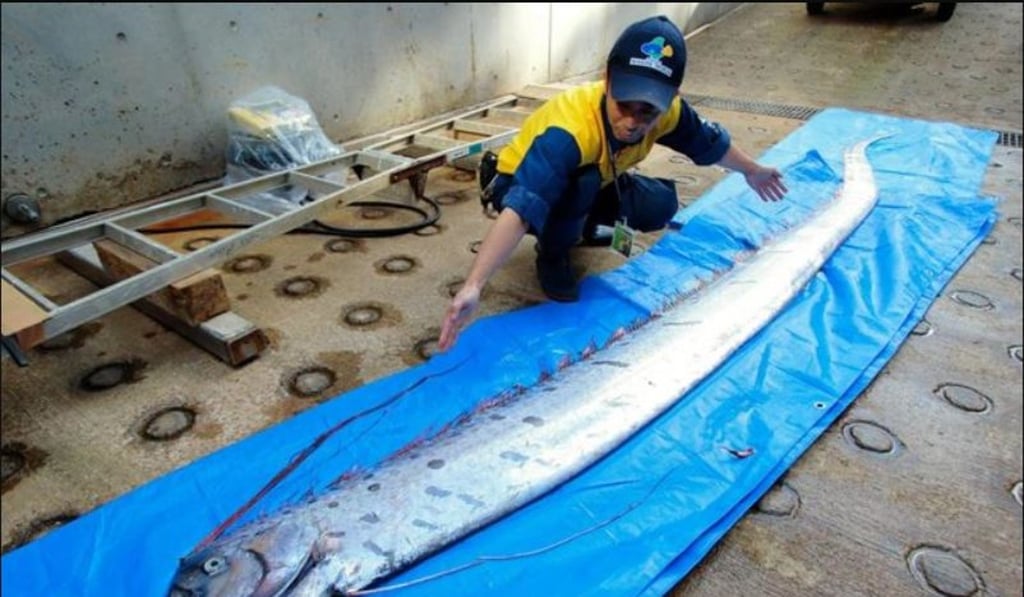Sex trainers, Kim Kardashian, yetis and Photoshop fails: the year’s best offbeat stories
- Meanwhile, rare oarfish sightings in Japan heralded disaster and DNA dating took off

As another year comes to a close, it’s time to reflect on the most offbeat tales of the past 12 months.
As ever, there’s a selection of bizarre animal tales – yetis, pythons, oarfish and heroic dogs – and more than a few lashings of online outrage, stoked by drinking stunts, Photoshop fails and harsh words about a popular Asian fruit.

Getting fired? Hire a support clown
New Zealand man Joshua Jack had an uneasy feeling when his bosses called him in for a meeting: he was either getting promoted at the advertising agency where he worked or being fired. So he took the responsible step and hired a “support clown” to accompany him. “I thought it’s best to bring in a professional and so I paid NZ$200 (US$134),” Jack said. He still got sacked but at least he had balloon animals at the end of it. The clown also mimed crying expressions as Jack went over the paperwork describing his termination.
Japanese singles have become so frustrated with their dating prospects that a new cutting-edge method of matchmaking has emerged. The service costs 36,000 yen (US$330) and plots differences in applicants’ human leucocyte antigen, or HLA genes. According to the science, the greater the genetic distance between two people’s HLA molecules, the more attractive they might find one another. Given the push by governments to drive up plummeting birth rates in countries such as Japan and Singapore, some DNA matchmaking firms are even being supported by the state.
The Guardian newspaper waded into a fruit-related controversy when it published a column by Zoe Williams describing jackfruit as a “spectacularly ugly, smelly … pest-plant” which people consumed “only if they had nothing better to eat”. Jackfruit is popular in Bangladesh and Sri Lanka, so Williams’ assessment was assailed online as tone deaf. “This is one of the most offensive bits of food writing I have read in a while, and trust, there is a lot of competition on this front,” Vindhya Buthpitiya, a researcher at University College London, wrote on Twitter.
Ping Pong has only three working legs, but the six-year-old dog became the toast of his village, northeast of Bangkok, in May. His digging and scratching at the ground alerted villagers who discovered a newborn baby who had been buried alive by his 15-year-old mother. “Ping Pong was hit by a car, so he’s disabled,” his owner said. “But I kept him because he’s so loyal and obedient, and always helps me out when I go into the fields to tend to my cattle. He’s loved by the entire village. It’s amazing he found the baby.”

Superstitious Japanese netizens went into overdrive in January after a series of oarfish sightings: long, eel-like fish that inhabit the deep sea and are rarely seen near the surface. Legend has it that when they migrate to the shallows, it foretells tragedy, particularly earthquakes and tsunami. The belief persists in Japan despite experts debunking the connection between the fish and natural disasters. “I’m not a specialist in fish, but there is no academic literature that has proven a scientific link,” said Professor Shigeo Aramaki, a seismologist at the University of Tokyo.